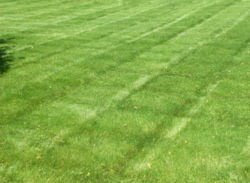“I used to be arrogant, but now I’m perfect.”

I was thinking about perfection, utopias, and paradise after I read this poem in the liner of Terry Riley’s classic CD, A RAINBOW OVER CURVED AIR and talked to my eldest son about his visions of Hippyish Sixties perfection:
"And then all wars ended. Arms of every kind were outlawed and the masses gladly contributed them to giant foundries in which they were melted down and the metal poured back into the earth. The Pentagon was turned on its side and painted purple, yellow and green. All boundaries were dissolved. The slaughter of animals was forbidden. The whole of Lower Manhattan became a meadow in which unfortunates from the Bowery were allowed to live out their fantasies in the sunshine and were cured. People swam in the sparkling rivers under blue skies streaked only with incense pouring from the new factories. The energy from dismantled nuclear weapons provided free heat and light. World health was restored. An abundance of organic vegetables, fruits and grains was growing wild along the discarded highways. National flags were sewn together into brightly coloured circus tents under which politicians were allowed to perform harmless theatrical games. The concept of work was forgotten."
I’ve never believed in perfection. It makes me suspicious. Ideologues and fundamentalists believe in perfection. People suffering from Obsession Compulsive Disorder believe in perfection. Sadistic teachers from my past believed in perfection. It’s too easy for people who believe in perfection to become inflexible and rigid or else cynical and despondent. “If we can’t do it right, then we shouldn’t do it at all.”
I remember being frustrated as a teen when asked to mow the lawn. I thought that there was some perfect way to mow the lawn, some Platonic ideal of a grid pattern. Why would I think that a perfect grid pattern was better than stream-of-consciousness mow-marks which took into account the real materiality of trees, hills, paving stones, and sleeping dogs, rather than some ideal of John Deere absolute beauty? I felt a secret guilt that I didn’t achieve perfection in my lawnmowing.
To be honest, as a father of two teens, I’d be delighted to have my lawn mowed at all --even if it looked as if had been mowed by a inebriated glacier peppered with boulders and snowplow blades.
I don’t want to know ahead of time what the perfect world might look like. There are too many things that I wouldn’t have taken into account. I want to remain flexible, open to surprises, to changes of mind, to Hopkins’ idea of “Pied Beauty*’, to the sudden appearance of squirrels in the underwear of progress.
I don’t want to hope for a utopia. I want to aspire to an OKtopia, a goodtopia, even a greatopia. I’m not expecting “the concept of work” to be forgotten (actually I’m not certain that that would be a good thing). I’d be happy if all wars ended, but I wouldn’t be disappointed if the masses didn’t spontaneously melt down their weapons. I don’t expect ploughshares on every street corner. I don’t expect to turn to police into country dancing experts and Tiddlywinks Tournament Supervisors.
Also, the perfect paradise is always somewhere else. I want to make THIS world better. Or good enough. Sometimes when I wash the dishes, I am seized by the notion that I can attain some kind of transcendent absolute, will have brushed my scrubby against a joyful, radiant beauty if I can just clean every speck, every burnt skirmish from the surface of the pots and pans. It’s a lovely idea really, but perhaps I’d be better off cleaning the dishes reasonably well, learning to appreciate the imperfections and burned on rice fragments, and then leaving the kitchen and playing with my children, or organizing poetry readings which have a stubby, spattered, ill-attended beauty all of their own.
I’m not talking here about making the handcuffs more comfortable. Beat those into cufflinks or miniature hand sanitizers. There are some non-negotiables here. Basic human and environmental well being, for example. I’m talking about not aspiring to paradise. I’d settle for parking my hybrid car on the service roads and parking lots on the outskirts of paradise.
If I hoped to able to swim “in the sparkling rivers under blue skies streaked only with incense pouring from the new factories,” I’d be disappointed and discouraged. I’d be happy to have clean rivers and non-polluting factories and leave the purple incense to emanate from my teenagers’ bedrooms.
________________________
*Here is Gerald Manley Hopkins’ poem:
Pied Beauty
GLORY be to God for dappled things,
For skies of couple-color as a brinded cow,
For rose-moles all in stipple upon trout that swim;
Fresh-firecoal chestnut-falls, finches' wings;
Landscape plotted and pieced, fold, fallow and plough,
And all trades, their gear and tackle and trim.
All things counter, original, spare, strange,
Whatever is fickle, freckled (who knows how?)
With swift, slow; sweet, sour; adazzle, dim.
He fathers-forth whose beauty is past change;
Praise him.
______________

Comments
Oh, and nice blog.